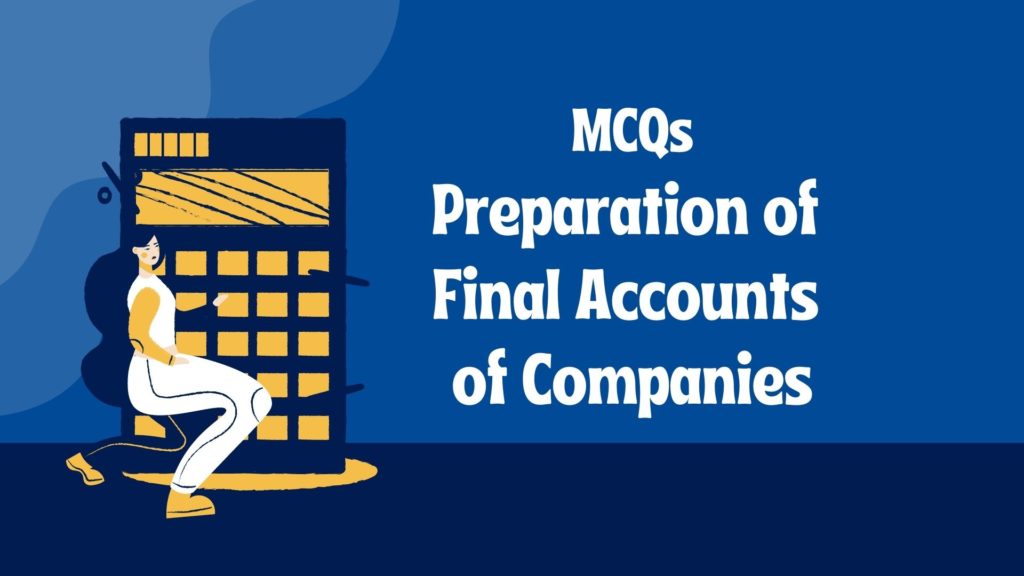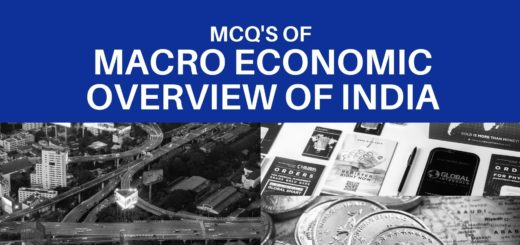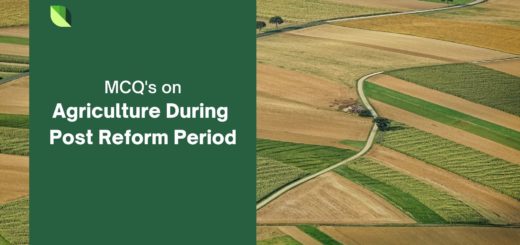Preparation of Final Accounts of Companies MCQ (Free) | Companies Act 2013
Preparation of Final Accounts of Companies

1. Which of the following items do not come under, reserves & surplus __________ .
a) capital redemption reserve
b) general reserve
c) provident fund
d) sinking fund
2. Opening balance of Profit & Loss A/c was Rs 7,500, dividend paid Rs 1,500, ending balance of Profit & Loss A/c was ` 5000. Net income / net loss was ___________ .
a) loss Rs 1,000
b) Net loss Rs 2,000
c) Net Income Rs 1,000
d) Income Rs 6,500
3. The final accounts of companies are to be prepared in accordance with the provision of __________ of the Companies Act.
a) Schedule VI
d) Schedule III
c) Schedule IX
d) Schedule II
4. The company’s final accounts are prepared in _____________ form.
a) Vertical
b) Horizontal
c) Both A & B
d) none of the above
5. The summarised Balance Sheet in ____ form is supplemented by schedules giving detailed information.
a) Vertical
b) Conventient
c) Horizontal
d) none of the above
6. The additional information for specific items specified in Schedule III should be _________ to the extent applicable.
a) disclosed
b) reduced
c) added
d) none of the above
7. The ___________ value of investment should be indicated by way of a note.
a) market
b) actual
c) face
d) none of the above
8. The balance in Share Forfeiture Account after reissue of forfeited shares is to be shown as _________.
a) General reserve
b) Securities premium
c) capital reserve
d) Provision for Taxation
9. The exchange difference for repayment of liability relating to purchase of fixed assets is to be disclosed as change on ___________ .
a) Reserve & Surplus
b) Assets
c) Profit and Loss A/c
d) none of the above
10. The amount of debtors due for more than __________ months is to be shown separately.
a) five
b) two
c) six
d) nine
| Answers: 1)Provident fund 2)Loss Rs 1,000 3)Schedule III 4)vertical 5)vertical 6)disclosed 7)market 8)capital reserve 9)assets 10)six |
11. Current liabilities means liabilities payable within ___________ months from the date of Balance Sheet.
a) six
b) twelve
c) four
d) three
12. Fixed deposits with banks should be shown as __________ .
a) bank loan
b) bank balance
c) bank overdraft
d) none of the above
13. Immovable properties held for companies operation is to be shown as ___________ .
a) investments
b) current liabilities
c) current assets
d) fixed assets
14. Immovable properties held for source of additional income is to be shown as ____________ .
a) loans and advances
b) investment
c) fixed assets
d) current assets
15. The interest on loan which has accrued and due is shown as ____________.
a) loan current
b) liabilities
c) unsecured loans
d) secured loans
16. Debit balance in Profit & Loss Account can be shown as _________ .
a) loans & advances
b) Profit and Loss A/c
c) capital W.I.P
d) miscellaneous expenditure or reductions from reserves
17. Uncalled amount on shares held as investment is shown under the heading __________ .
a) contingent liability
b) current assets
c) loans & advances
d) current liabilities
18. Bills discounted is to be shown as __________ .
a) loans & advances
b) contingent liability
c) current assets
d) none of the above
19. The value of secured loan should also show particulars of ___________ offered.
a) security
b) Assets
c) Cash
d) none of the above
20. The capital work in progress is added to ___________ in Balance Sheet.
a) current assets
b) share capital
c) fixed assets
d) current liabilities
| Answers: 11)twelve 12)bank balance 13)fixed assets 14)investment 15)loan 16)miscellaneous expenditure or reductions for reserves 17)contingent liability 18)contingent liability 19)security 20)fixed assets |
21. Loose tools are shown under ___________ assets.
a) current
b) fixed
c) capital
d) other assets
22. Live stock is shown under __________ assets.
a) investment
b) current assets
c) fixed assets
d) current liabilities
23. Bills receivable is shown under ___________ .
a) current assets
b) loans and advances
c) Trade Receivable
d) current liabilities
24. Arrears of preference dividend is shown under _________ liabilities.
a) contingent liability
b) current liabilities
c) fixed liability
d) none of the above
25. Interest accrued but not due on secured loans is shown under ___________ .
a) current liabilities
b) unsecured loans
c) secured loans
d) none of the above
26. Unclaimed dividend is shown under __________ .
a) current liabilities
b) share capital
c) provisions
d) unsecured loans
27. Profit and Loss of a company must be as per part __________ of schedule III of Companies Act.
a) III
b) IV
c) II
d) VI
28. Repairs to building must be shown as a __________ on debit side of Profit and Loss A/c.
a) addition
b) separate item
c) other expenses
d) none of the above
29. Public deposits accepted by companies must be shown under ___________ .
a) investment
b) secured loans
c) loans & advances
d) unsecured loans
30. Development expenditure is shown under _________.
a) current liabilities
b) fixed assets
c) other Current Assets
d) none of the above
| Answer: 21)current 22)fixed 23)Trade Receivable 24)contingent 25)current liabilities 26)current liabilities 27)II 28)separate item 29)unsecured loans 30)Other Current Assets |
31. Short term loan is the loan due for not more than _________ year.
a) six
b) five
c) one
d) two
32. Remuneration to MD must be shown as a _________ item in Profit and Loss A/c.
a) Expense
b) separate
c) none of the above
33. Bills Receivable is shown under ___________ in Balance sheet.
a) contingent liability
b) Trade Receivable
c) loans & advances
d) current liabilities
34. Net Block of fixed assets is shown ____________ Balance sheet.
a) vertical
b) Horizontal
c) Schedule of capital
d) none of the above
35. Net Block is Gross Block less _________ .
a) current assets
b) Accumulated depreciation
c) current liabilities
d) none of the above
36. Income tax under dispute is shown under ___________ .
a) current assets
b) current liabilities
c) contingent liability
d) loans & advances
37. Dividend is calculated on __________ capital.
a) paid up
b) Subscribed
c) Uncalled
d) none of the above
38. Accounting policies are prescribed by __________.
a) AS 2
b) AS 6
c) AS 13
d) AS 1
39. Dividend is declared by ___________.
a) directors
b) stock exchange
c) shareholders
d) none of the above
40. Live stock is shown under ___________assets.
a) Fixed
b) investment
c) current assets
d) None of the above
| Answer: 31)one 32)separate 33)Trade Receivable 34)vertical 35)Accumulated depreciation 36)contingent liability 37)paid up 38)AS 1 39)shareholders 40)Fixed |
41. Land is disclosed under ___________.
a) PPE (Property, Plan and Equipments)
b) investment
c) Other assets
d) none of the above
42. Intellectual property rights are disclosed under ____________ .
a) Other Intangible Assets
b) Tangible assets
c) Other assets
d) None of the above
43. Capital Redemption Reserve is disclosed under ______________ .
a) loans
b) Borrowings
c) Equity
d) Other Equity
44. Debentures are disclosed under __________ .
a) Miscellaneous expenditure
b) Unclaimed dividend
c) Borrowings
d) none of the above
45. Unpaid dividend is disclosed under __________ .
a) Other Financial Liability
b) contingent liabilities
c) reserves and surplus
d) current liabilities
46. Share application money received for allotment to the extent refundable is shown under ___________ .
a) current assets
b) Other Financial Liability
c) current liabilities
d) none of the above
47. Share application money pending allotment is disclosed under ____________ .
a) loans
b) Borrowings
c) other equity
d) Equity
48. The requirements for final account of companies are specified in Schedule ___________.
a) I
b) III
c) XIII
d) XIV
49. The Schedule III prescribes vertical form of Balance Sheet in part __________ .
a) 4
b) 2
c) 3
d) 1
50. The unpaid interest on loan is _____________ .
a) loan
b) current liabilities
c) reserve
d) contingent liabilities
| Answer: 41)PPE 42)Other Intangible Assets 43)Other Equity 44)Borrowings 45)Other Financial Liability 46)Other Financial Liability 47)Equity 48)III 49)1 50)Current Liabilities |
Learn the chapters on TYBCOM from our YouTube channel.


